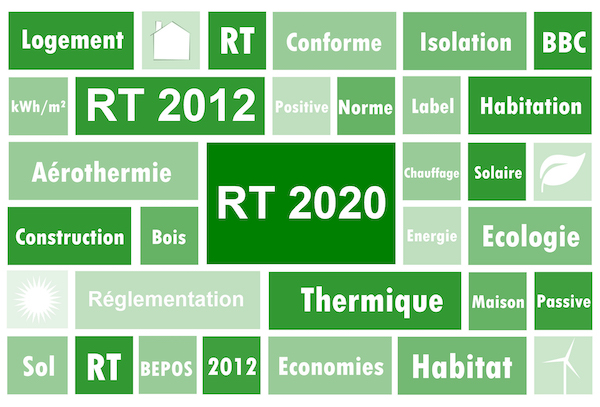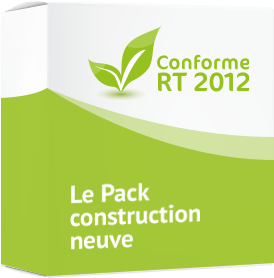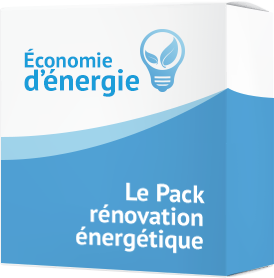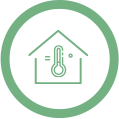en infiltrométrie & études thermiques
RE2020
 Remplaçant la règlementation thermique RT2012, la règlementation environnementale RE2020 vise une neutralité carbone des bâtiments neufs et une meilleure protection de l’environnement.
Remplaçant la règlementation thermique RT2012, la règlementation environnementale RE2020 vise une neutralité carbone des bâtiments neufs et une meilleure protection de l’environnement.
Elle est basée sur 6 indicateurs qui sont les besoins bioclimatiques (Bbio), les consommations d'énergie primaire totale (Cep), les consommations d’énergie non renouvelable (Cep nr), l’impact sur le changement climatique associé aux consommations d’énergie primaire (IC énergie), l’impact sur le changement climatique associé aux composants et aux chantiers (IC construction) et aux degré-heure confort (DH).
Mise en vigueur au 1er janvier 2022, elle poursuit la démarche de la RT2012 en renforçant le confort d’été et en prenant en compte le cycle de vie du bâtiment ainsi que son impact carbone.
de constructeur en
une seule formule

d’énergie
de chauffage



BBIO

thermique


le neuf

fin de chantier
Etude thermique
Aix-les-Bains
Infiltrométrie Roche-sur-Foron | Infiltrométrie Chambéry | Thermographie Savoie | Infiltrométrie Ugine | Infiltrométrie Cluses | Infiltrométrie Ain | RE2020 Ain | RE2020 Savoie | RE2020 Annecy | Infiltrométrie Seynod | Infiltrométrie Grenoble | RE2020 Haute-Savoie | RE2020 Chambéry | Infiltrométrie Saint-Jean-de-Maurienne | Infiltrométrie Albertville | Infiltrométrie Rumilly | Infiltrométrie Aix-les-Bains | RE2020 Albertville | RE2020 Grenoble | RE2020 Saint-Jean-de-Maurienne | RE2020 Aix-les-Bains | Rénovation énergétique Savoie | Infiltrométrie Sallanches | Thermographie Grenoble | Infiltrométrie Bourg-Saint-Maurice | Rénovation énergétique Chambéry | Infiltrométrie Annecy | Infiltrométrie Savoie | RE2020 Isère | Thermographie Saint-Jean-de-Maurienne | Infiltrométrie Belley |
Possibilité de régler votre facture par :






